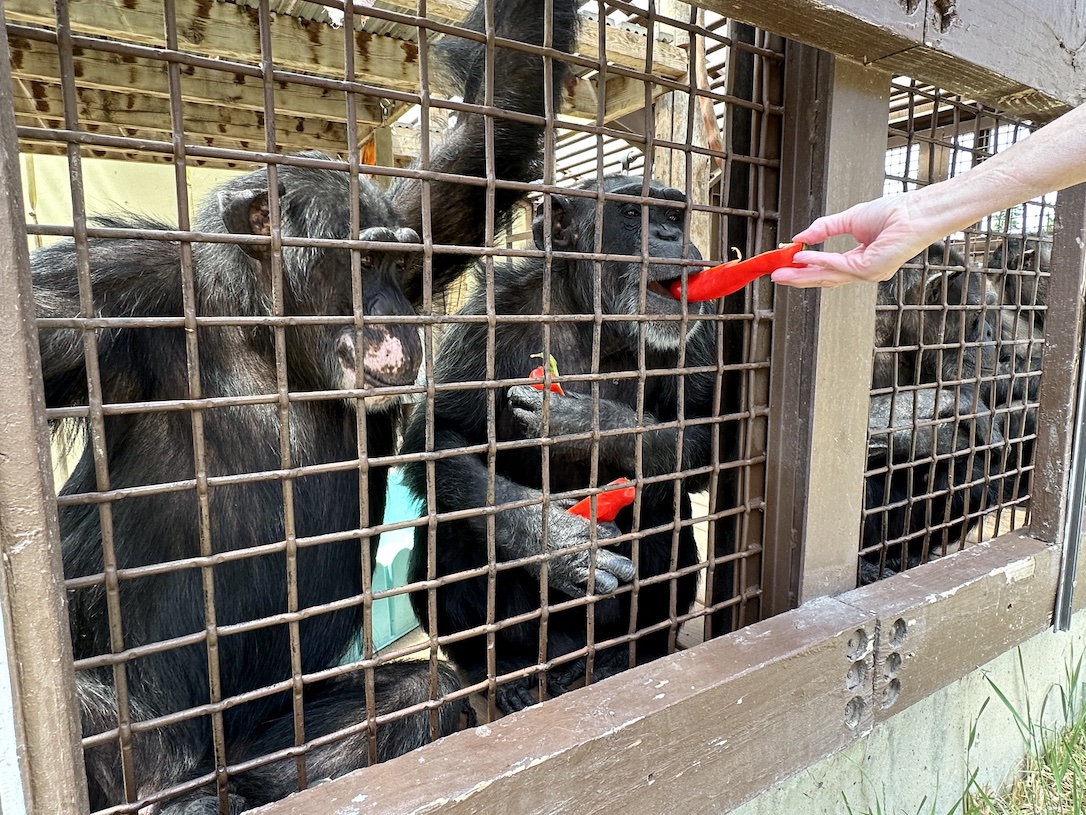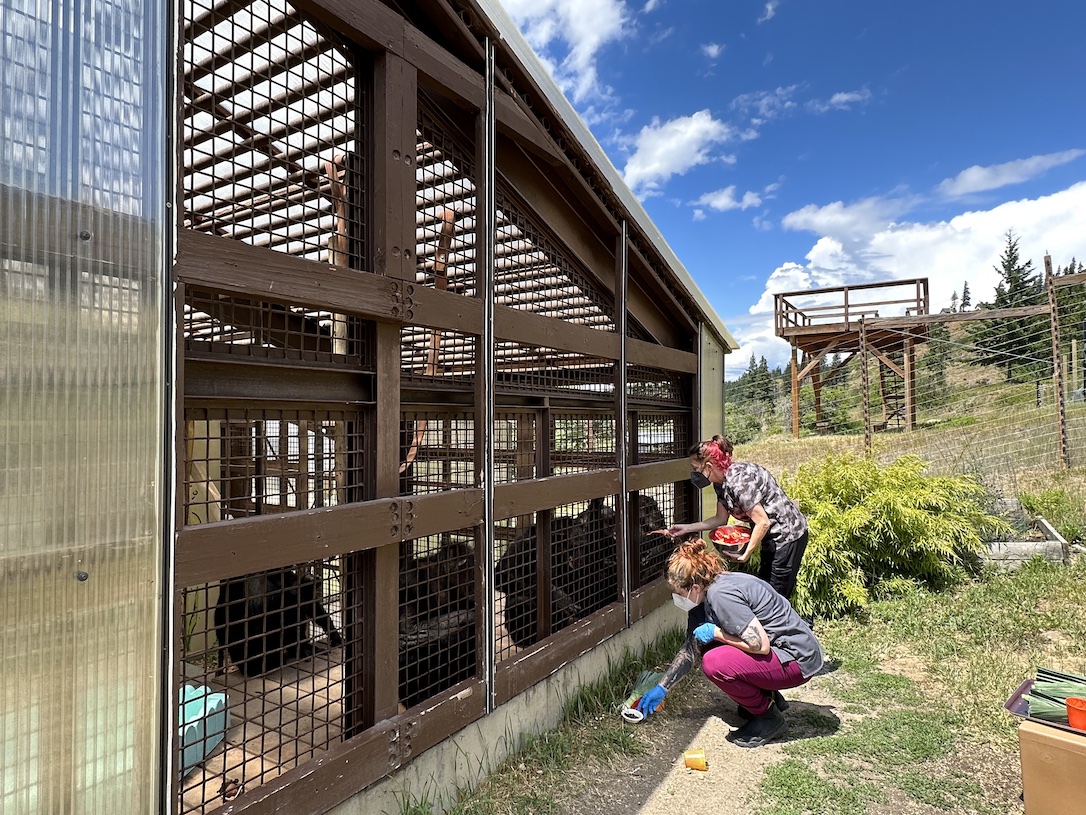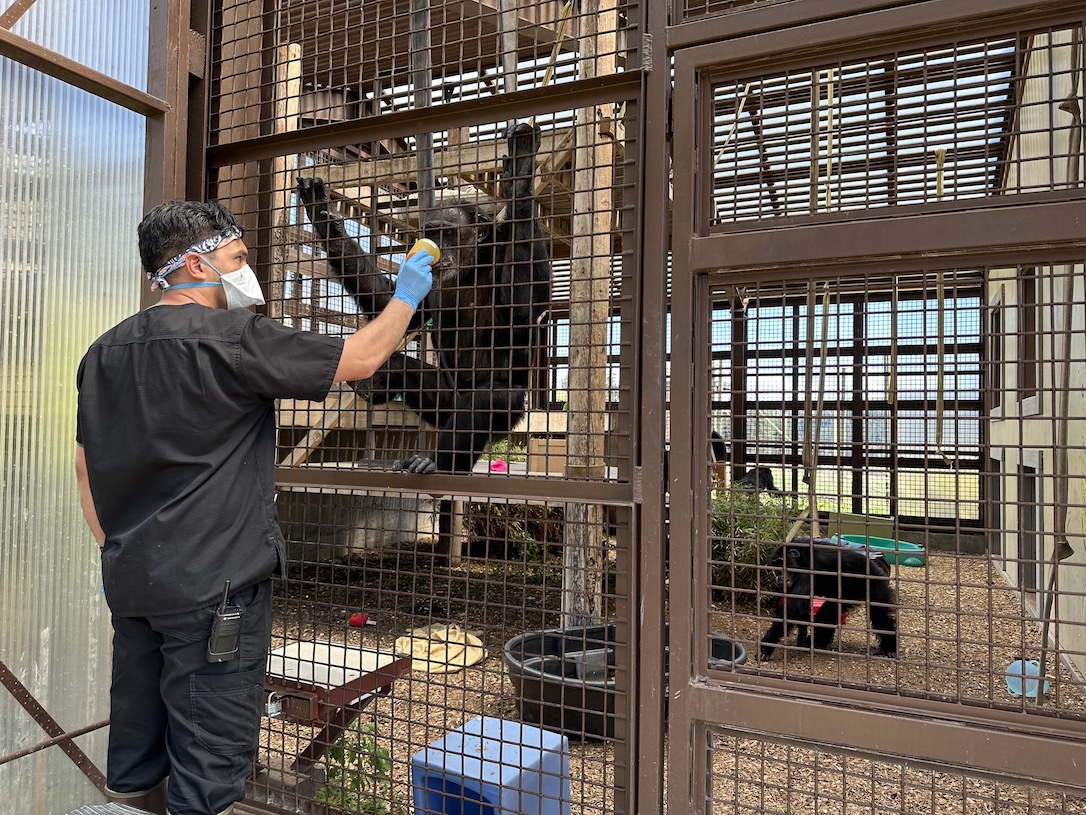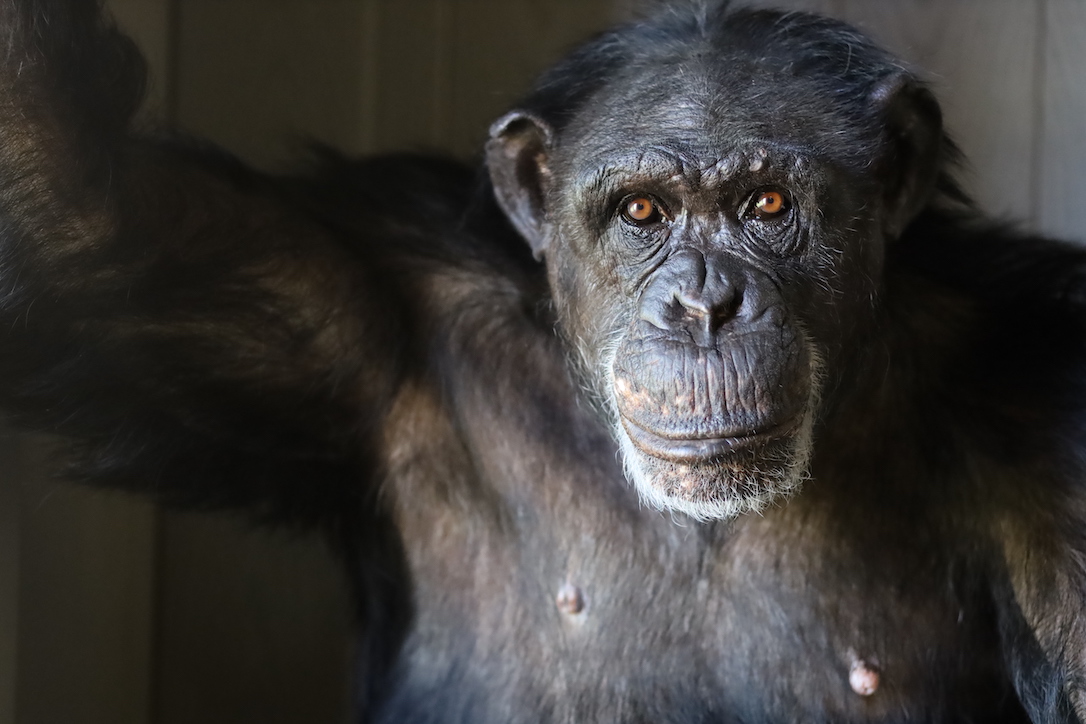We’ve written a lot about that ways that Positive Reinforcement Training (PRT) can improve the lives of captive animals, including—or should I say especially?— chimpanzees. Chimps are so powerful and so strong-willed that often the only way to get them to reliably engage in certain behaviors, whether it’s allowing the stick of a needle to administer medication or leaving an enclosure so it can be cleaned, is to ensure that it is by their own choice.
One area where PRT is particularly useful is during meals. Some dominant chimps take a What’s mine is mine and what’s yours is also mine approach to food, leaving other chimps in their group hungry, anxious, or both. A technique known as cooperative feeding can encourage dominant chimps to allow their group mates to eat their meals in peace by rewarding tolerance for others eating nearby. The trick is not to forcefully assert our own sense of fairness but to show certain chimps that it can be worth their while to chill out a bit. Sure, you could steal someone else’s food, but if you allow everyone else to eat you’ll get something even better for a whole lot less effort.
We’ve been using this technique with Jamie lately, as she has been giving both Foxie and Annie a hard time during meals. It’s certainly not unheard of for Jamie to steal food to assert her dominance, but the recent uptick has had her group mates on edge and unwilling to even take certain foods. Why all of a sudden? It’s hard to say for sure, but it’s possible that Jody’s passing left some ambiguity within the hierarchy and Jamie may have been feeling the need to remind everyone that there will be no changes at the top. Subtle, she is not.
One of the keys to effective training is finding the right unconditioned reinforcer, which is the natural reward that often follows the click or whistle, telling the animal that behavior is worth doing again. In almost all of the training we do—that is, the training the occurs during formal sessions—that reinforcer is food. Sips of juice, pieces of chopped up fruit, and bits of primate chow are all effective, though each individual will be motivated according to their own preferences. For Jamie, that means a click! and a piece of preferred food or drink every time she watches Foxie or Annie receive something she might want to steal. And if she stays at her station throughout the entire meal, she may even get a special treat, such as a whole clementine, at the end.
But food is such an efficient reinforcer that we sometimes forget that it’s not the only one. For Jamie, flattering her ego may be an equal or even greater reward. That’s not to say that Jamie doesn’t appreciate the special treats, but the extra attention from her caregivers and special status at mealtimes may being doing some if not most of the work. Perhaps when you are recognized as the boss by the humans in front of all your group mates, there’s less need to constantly remind everyone.
We’re all motivated by a handful of basic desires – to be noticed, to be appreciated, to be respected. Figuring out what makes someone tick can go a long way toward influencing their behavior. Because in the end, Jamie isn’t as complicated as she would appear: all she needs is the unquestioning loyalty, unreserved admiration, and complete and thorough submission of all those around her, human and chimpanzee, at all times. That and a few extra pear slices and she’ll be happy to mind her own business at lunch.








